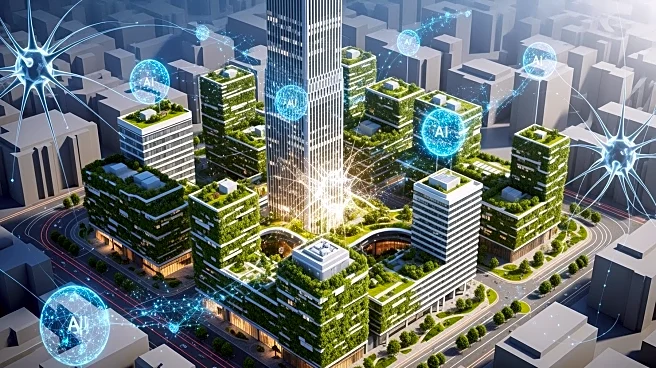What's Happening?
A comprehensive framework has been developed to leverage artificial intelligence (AI) for sustainable urban development, aiming to create smart and environmentally friendly carbon-free cities. The framework utilizes AI applications such as data analytics,
machine learning (ML), and predictive modeling to enhance urban planning, disaster management, and resource optimization. Over the past decade, studies have demonstrated the effectiveness of intelligent frameworks supported by robust data analytics in improving energy utilization systems. The Extra Trees Regressor and CatBoost Regressor models have shown strong performance in predicting energy efficiency, highlighting the potential of AI in smart city applications.
Why It's Important?
The integration of AI into urban development is significant as it offers a pathway to address environmental challenges and improve city infrastructure. By optimizing energy use and enhancing disaster management, AI-driven smart cities can reduce carbon emissions and improve the quality of life for residents. This approach supports sustainable development goals and can lead to economic benefits through efficient resource management. Stakeholders in urban planning, environmental policy, and technology sectors stand to gain from these advancements, as they can lead to more resilient and adaptive urban environments.
What's Next?
The continued development and implementation of AI frameworks in urban planning are expected to drive further innovations in smart city technologies. Policymakers and urban planners may focus on expanding AI applications to other areas such as transportation and waste management. Collaboration between technology companies and government agencies could accelerate the adoption of AI solutions, leading to more comprehensive smart city initiatives. Monitoring and evaluation of AI-driven projects will be crucial to ensure they meet sustainability targets and provide tangible benefits to communities.
Beyond the Headlines
The ethical implications of AI in urban development include concerns about data privacy and the potential for algorithmic bias. Ensuring transparency and accountability in AI systems is essential to maintain public trust and avoid unintended consequences. Additionally, the cultural impact of AI-driven cities may lead to shifts in how communities interact with their environment, necessitating adaptive strategies to preserve local identities and values.















